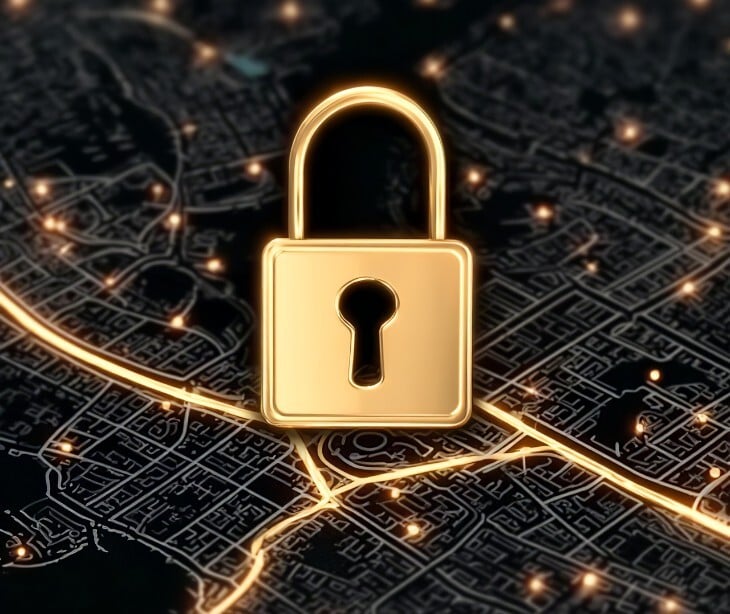
Tokenization substitutes sensitive data with unique, randomized tokens without a mathematical relationship to the original information. These tokens retain specific attributes, such as length or format, allowing seamless integration into existing systems and processes without disrupting business operations.
The true power of tokenization lies in its ability to remove sensitive data entirely from an organization's internal environment. Partnering with a trusted third-party tokenization provider allows businesses to securely store the original data offsite, eliminating the risk of exposure within their systems.
Understanding tokens
A token is a nonsensitive piece of data that acts as a stand-in for valuable information, such as credit card numbers or Social Security numbers. Tokens hold no inherent value on their own; their purpose stems from their representation of something valuable.
Consider the analogy of a poker chip. Instead of risking cash on the table, players use chips as placeholders. Even if these chips are stolen, they cannot be redeemed for their monetary value without being exchanged through the proper channels. Similarly, tokens serve as placeholders for sensitive data, rendering the information useless to potential attackers.
Read more: Is token-based authentication HIPAA compliant?
The tokenization process
When a business partners with a third-party tokenization provider, a four-step process is initiated to ensure the security of sensitive data:
- Data transformation: Sensitive data is exported and transformed into nonsensitive tokens by the tokenization provider, without relying on encryption keys.
- Extraction from internal systems: The original sensitive information is completely removed from the organization's internal systems and replaced with tokens.
- Operational use of tokens: The mathematically unrelated tokens are retained within the organization for operational purposes, allowing businesses to continue using the data without risking exposure.
- Secure external storage: The original sensitive data, now replaced by tokens internally, is securely stored offsite by the third-party tokenization provider.
The process effectively eliminates the presence of valuable information within an organization's systems, reducing the risk of data theft and ensuring compliance with industry regulations.
The purpose of tokenization
Tokenization serves to safeguard sensitive data while maintaining its business utility. Unlike encryption, where data is modified and rendered unusable for operational purposes, tokenization allows organizations to continue using the tokenized data for various activities without compromising security.
Moreover, tokenized data cannot be reversed or decrypted, as there is no mathematical relationship between the token and its original value. Such a distinction is fundamental because a breach of a tokenized environment will not expose the original sensitive information, providing an unparalleled level of security.
Read also: What is encryption?
Benefits of tokenization
Implementing tokenization offers businesses several benefits:
- Enhanced security: When replacing sensitive data with tokens, tokenization adds an extra layer of security, making the information less valuable to potential attackers and protecting customers' sensitive details.
- Flexibility and cost efficiency: Working with a reputable tokenization provider allows businesses to choose payment processors with competitive rates, low processing fees, and reliable uptime while maintaining compliance and reducing associated costs.
- Improved customer experience: Tokenization accommodates diverse payment needs, such as in-app purchases, recurring subscriptions, and multiple gateways, enabling businesses to adapt to changing customer requirements over time.
- Risk mitigation: Tokenization reduces the risk of data breaches, which can have financial and reputational consequences for organizations. In the event of a breach, tokenization ensures that customers' valuable payment information remains protected.
Applications of tokenization
One of the most common applications of tokenization is the protection of cardholder data. When a customer initiates a payment transaction, the token stored in the business's systems is swapped with the corresponding primary account number (PAN) by the original tokenization system, and the PAN is then sent to the payment processor for authorization. The process ensures that the business's systems never record, transmit, or store the actual PAN, reducing the risk of data exposure.
While no technology can guarantee the complete prevention of a data breach, a properly implemented and maintained tokenization platform can effectively prevent the exposure of sensitive data, rendering any stolen information useless to attackers.
Furthermore, according to Medical Economics, “As health care becomes increasingly retail-like, patients will expect – and even demand - that their providers deliver the secure, seamless, and convenient digital payment experiences they have grown accustomed to in other industries. Payment tokenization technology plays a prominent role in enabling providers to fulfill this growing patient expectation.”
Industries embracing tokenization
Tokenization offers a versatile and secure framework for various industries:
- Retail: Tokenization secures and streamlines transactions in the retail industry, ensuring customer data remains safe throughout the purchasing process.
- Travel: In the travel industry, tokenization excels at accepting and securing customer data from multiple sources, such as websites and mobile apps, while keeping the payment card industry data security standard (PCI DSS) scope in check.
- Fintech: Vaultless tokenization platforms provide secure cardholder data storage through PCI tokens, striking a balance between security and usability for fintech companies.
- Healthcare: Tokenization assists the healthcare sector in secure data handling, removing direct identifiers, reducing fraud risks, and ensuring compliance with industry regulations.
Related: How to de-identify protected health information for privacy
Detokenization
While tokenization is designed to be an irreversible process, there may be instances where businesses need to retrieve the original sensitive data. Detokenization, the reverse process of exchanging the token for the original data, comes into play in such situations. Only the original tokenization system can perform detokenization, ensuring that the sensitive information remains secure and inaccessible to unauthorized parties.
Tokenization vs. encryption
Encryption and tokenization are two related data protection technologies that have distinct differences. Tokenization involves substituting sensitive values with tokens, which are similar-looking but have different values, to preserve the data's format. On the other hand, encryption converts data into gibberish that looks drastically different from the original.
While both encryption and tokenization serve as forms of data protection, tokenization focuses on preserving the format of the data. In contrast, encryption stresses transforming the data into an unrecognizable form.
The goal of tokenization
The ultimate goal of an effective tokenization platform is to eliminate any original sensitive data from an organization's systems, replace it with indecipherable tokens, and securely store the original data in a separate, offsite environment. This data-centric approach to security adheres to the principles of ‘zero trust,’ where no entity, whether internal or external, is inherently trusted with sensitive information.
While tokenization is not a security system designed to prevent network breaches or system infiltration, it represents a proactive measure to render any stolen data unusable and worthless to cybercriminals. Adopting this mindset helps organizations mitigate the risk and impact of data breaches, protecting both their customers' sensitive information and their own reputation.
FAQs
Does HIPAA apply to tokenization?
Yes, tokenization can be an effective solution for organizations subject to the Health Insurance Portability and Accountability Act (HIPAA). By tokenizing protected health information (PHI), healthcare providers and entities can reduce the risk of data breaches and ensure compliance with HIPAA's stringent data security and privacy requirements.
How does tokenization relate to healthcare?
In the healthcare industry, tokenization secures sensitive patient data, such as medical records, insurance information, and personal identification details. Tokenizing this sensitive information helps healthcare organizations protect patient privacy, reduce the risk of data breaches, and maintain compliance with industry regulations like HIPAA.
What can I use tokenization for?
Tokenization can be applied to various types of sensitive data, including:
- Payment card information (credit/debit card numbers, CVV codes)
- Personal identification data (Social Security numbers, driver's license numbers)
- Healthcare data (medical records, insurance information, patient identifiers)
- Financial information (bank account numbers, investment account details)
- Intellectual property and trade secrets
Learn more: HIPAA Compliant Email: The Definitive Guide




